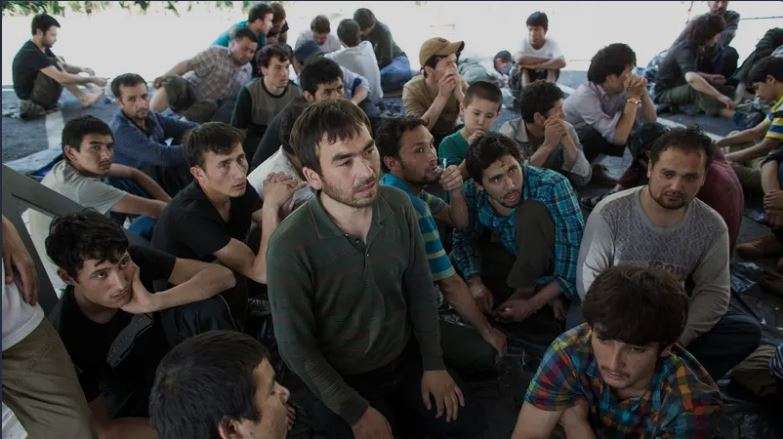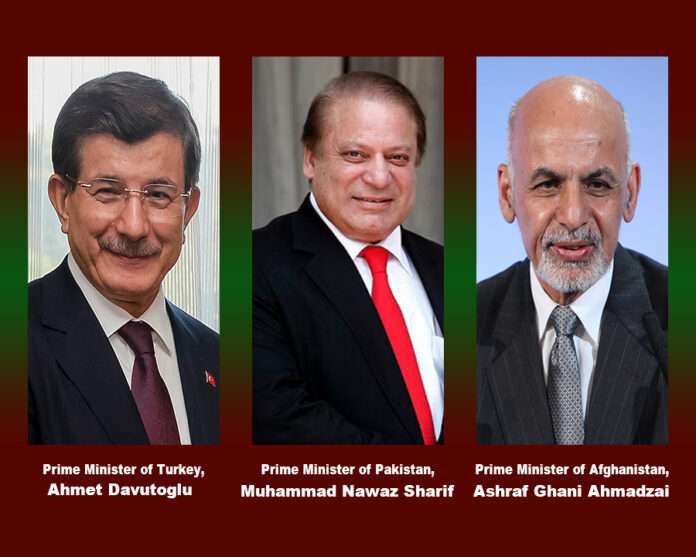During the recent Pakistan-Turkey summit both sides explored options to assist Afghanistan in reaching a peace agreement with the Taliban. Turkish premier Ahmet Davutoglu had an extensive agenda, including looking beyond bilateral cooperation and playing a role in stabilising Afghanistan. Due to Turkic demographic belt running from West Asia to East Asia through Afghanistan, Turkey has an abiding interest in peace and stability in Afghanistan. Turkey has been playing an active role to keep the Afghan crisis manageable; it hosts a whole range of events viz Istanbul, Ankara, and Heart of Asia processes to keep the diplomacy in motion. Moreover, during Karzai era, whenever Afghanistan and Pakistan fell apart, Turkey took it upon itself to bridge the gap. Turkey would have been the most suitable venue to host political office of Taliban but the forces that be thought that such office should be located in a place where Pakistan’s influence over the Afghan events could be lesser—an absurd idea. Nevertheless, no matter where talks take place between the Taliban and the Unites States as well as the Taliban and the Afghan government, Turkey shall always be remembered as a pioneer of this peace process — from conceptual through operational stages.
Turkey has expressed its satisfaction with the new phase of relations between Pakistan and Afghanistan. Turkish Prime Minister said that there is a trilateral connection between Turkey-Pakistan-Afghanistan and that he was glad to see such a high level of collaboration between Afghani and Pakistani leaders. Now the Afghan government is in contact with the Taliban to explore options for a possible peace deal. It is too early to extrapolate the profile of such parleys, however, simultaneous contacts between the US and Taliban in Doha indicate that the initiative has taken off, and matters could be at a fairly advanced stage. Nevertheless, this is a very difficult path—filled with numerous landmines. Pakistan has finally managed to bring these parties to negotiating tables. President Ghani has welcomed Pakistan’s initiative to help in the reconciliation process.
In retrospect, it is now evident that Americans and the Taliban have maintained contacts since the setting up of the Taliban’s political office in Doha, though this office was formally declared ‘closed down’ after the then Afghan President, Hamid Karzai, objected to a plaque identifying the building as the office of ‘Islamic Emirate of Afghanistan. Thence after, ice breaking direct contact between President Ghani’s administration and the Taliban became possible after months of behind-the-scene efforts by Pakistan as well as China. Earlier the US had tried to broker peace between the Taliban and the Ghani administration, but the Taliban were not amenable to American mediation. Pakistan played a positive and constructive role in bringing the two sides to the negotiating table.
So far Islamabad’s role was strictly confined to facilitation, and it is doing whatever it could; now it is up to the Taliban and the Afghan government to reach an appropriate agreement. The two sides are exploring options, including the venue for formal talks. Beijing; Dubai and Islamabad are under consideration for this purpose. China has offered to host the talks between the Taliban and Afghan government. Taliban have already warmed up to the Chinese offer and a two-member Taliban delegation has already paid an unannounced visit to Beijing in November 2014.
Pakistan is ready to support in all sincerity the Afghan reconciliation process however, the process has to be transparent, Afghan-led and Afghan-owned. Pakistan has all along been of the view that it is for the Afghan government to lead efforts for reconciliation. Afghan foreign minister Salahuddin Rabbani is expected to visit Islamabad soon to coordinate efforts for restoring and speeding-up the peace processes in Afghanistan. Salahuddin has the advantage that he also heads the Afghan High Peace Council; and thus what he says abroad, he will be able to sell it at home as well.
Pakistani and Afghan leadership has reached a conclusion to start joint efforts to counter militancy. Especially, the attacks on the Army Public School and Paktika’s Yahya Khel area have strengthened commitment in both countries to jointly fight against terrorism and extremism. “The Islamic Republic of Afghanistan respects Pakistan’s recent efforts to pave the way for peace and reconciliation,” the Presidential Palace said in a statement. The statement also welcomed Army Chief General Raheel Sharif’s remarks that Pakistan considers “Afghanistan’s enemy as its own enemy”. The statement added that Afghanistan, Pakistan, and international allies are committed to sincerely cooperate with each other to achieve peace. “Like Pakistan, Afghan government also believes that certain elements could try to derail the peace process”, said Ghani’s office; and it warned that opponents to the peace efforts could mislead the people through disinformation.

On another peace track, to earn the Chinese good will, Afghan security personnel have arrested and handed over several Uighur separatist militants from China’s restive Xinjiang region in an effort to persuade Beijing to use its influence with Pakistan to help start negotiations with the Taliban. “We offered our hand in cooperation with China and in return we asked them to pressure Pakistan to stop supporting the Taliban or at least bring them to the negotiating table,” said one Afghan security official. Chinese Foreign Minister Wang Yi, who recently visited Islamabad, indicated his country’s willingness to help the reconciliation process in Afghanistan. China’s entry into Afghan peace process was long overdue; this will help the sustainability of the peace process, because China is perceived as an honest peace broker by all.
As the peace move is likely to pick up in the coming weeks, the Afghan president has stepped up consultations with stakeholders in his country to evolve consensus. President Ghani has told the members of High Peace Council that establishment of peace in Afghanistan is his priority. And reportedly, the peace council has thrown its weight behind Ghani’s reconciliation move. “Establishment of peace in our country is very difficult after a long war and mistrust…The peace route is not a short route. But I am confident to prove all international experiences wrong and bring peace to our country as soon as possible,” said President Ghani.
Prime Minster Ahmet lauded Pakistan’s efforts to establish peace and stability in Afghanistan as peace and stability in Afghanistan means peace and stability in Turkey and Pakistan. He also said that there is a trilateral connection between Turkey-Pakistan-Afghanistan and that he was glad to see such a high level of collaboration between Afghani and Pakistani leaders. While speaking at a joint press conference along with Prime Minister Nawaz, he announced an assistance of 20 million dollars for the temporarily displaced persons, as a result of military operation—Zarb-e-Azb— in North Waziristan. Feeling the pain of the displaced people and taking concrete steps by Turkish Prime Minister to mitigate their hardship is reflective of the depth of people to people empathy between the two countries. Over one million people were uprooted after the security forces launched a major offensive against the Taliban and other militant groups in the region. Situation leading to such massive human displacement is created by the spill over of Afghan conflict into Pakistan. The government has planned to start phased repatriation of these temporarily displaced persons (TDPs) within a month. This process will take one year to complete. Around 1.4 billion dollars will be needed for the repatriation and rehabilitation of the TDPs.
The Turkish Prime Minister’s first visit to Pakistan was a resounding success not only in the bilateral context but also for regional stability. Pakistan appreciates Turkey’s effort for bringing enduring peace in Afghanistan and hopes that it will continue to play its constructive role.





